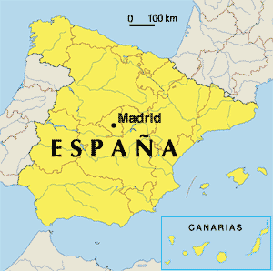The Economic and Social Crisis in Spain. “They Want to Make Poverty Normal”

We have entered 2014 a little poorer. For those of us with a job, our salaries have been frozen, or even cut; only a few can expect a rise in the New Year. Furthermore, the price of electricity, public transport and water are increasing.
2013 ended with the controversy over a threatened increase in electricity bills by 11%, leaving Spaniards paying well above the European average and Spain ranking the third most expensive electricity in Europe. So, Mariano Rajoy’s Popular Party (PP) government intervened and stopped this rise by decree. As you can see, if the PP wants to, it can intervene. But overall, there is little willingness to confront the interests of multinationals. For now, the government has limited the rise to 2.3%, and we are expected to be thankful.
The rising price of public transport is another traditional New Year scam. Train tickets, are up nearly 2%, and in Barcelona, ??not to be outdone, the fare raises on the subway are an abusive 5% with the most popular travelcard, the T-10. However, if you usually take the high speed train (AVE) , which is only used by a minority of citizens, do not worry, because the price has been frozen . Lucky too, are the drivers who use the highways from Castelldefels to Sitges and Montgat to Mataro, where the tolls have been reduced by 30% and 10% respectively, provided they use teletac card, the automatic payment system. Lower the cost of private transport and increase the cost of public transport – that’s the approach of Catalonia’s [right-wing nationalist] CiU government.
And in Barcelona, we face further rises, for water too, even if money appears to be in plentiful supply, especially for the city council, as we saw with the celebrations on New Year’s Eve at the Montjuïc fountain. The tourists are happy at least. But for the rest of us, water bills will be going up by 8.5 % on average in the metropolitan area of Barcelona, thanks to the votes of CiU and [Catalan Socialists] PSC, and the abstention of the [left nationalists] ERC. In the end, those who criticise the cuts are the first to sharpen the scissors. We will not forget.
Meanwhile, the minimum wage remains frozen, as was the case last year, leaving it at a meagre 645 euros per month, while public sector workers remain on the wages they received in 2010. Pensions of those ten million retirees who worked all their lives, will see their incomes hit by a change in indexation that means rise are tied to below inflation (CPI ); this year they will rise by just 0.25% , the minimum set by the Government . An increase that will barely buy a cup of coffee.
We enter this 2014, a little poorer. Our purchasing power slowly falls. Every year that passes we have less. They want to make poverty normal. Do you remember those stories, not so long ago, of those struggling on 1000 euros a month? The new precariat. Today an employer offering a job paying a thousand euros monthly would be swamped by curriculums . And yet some, like the Prime Minister, dare to say that 2014 brings ” the beginning of the recovery.” What a bunch of thieves and liars.
+info: http://esthervivas.com/english/
This article was first published in the Spanish digital newspaper Público.es, 02/01/2014. translated by Revolting-Europe.com.

